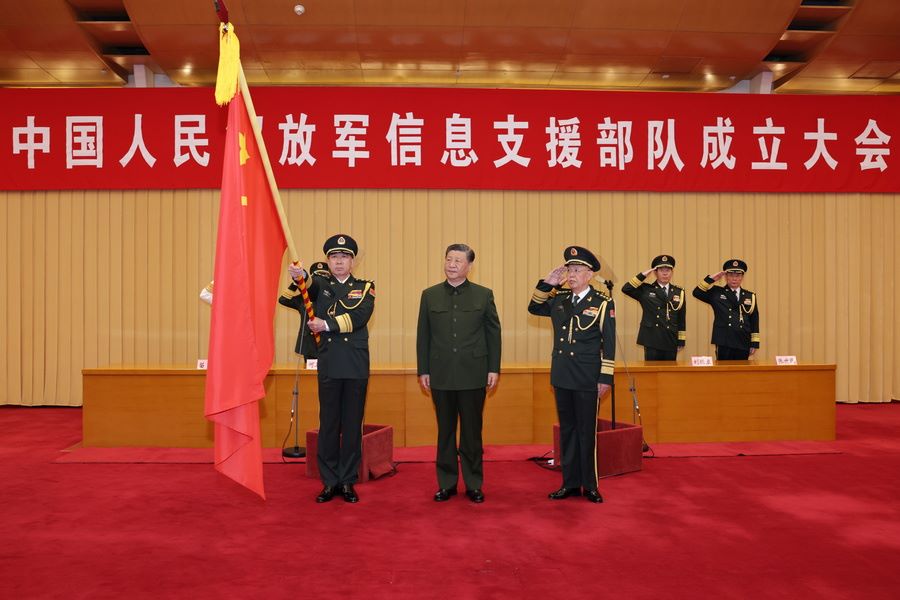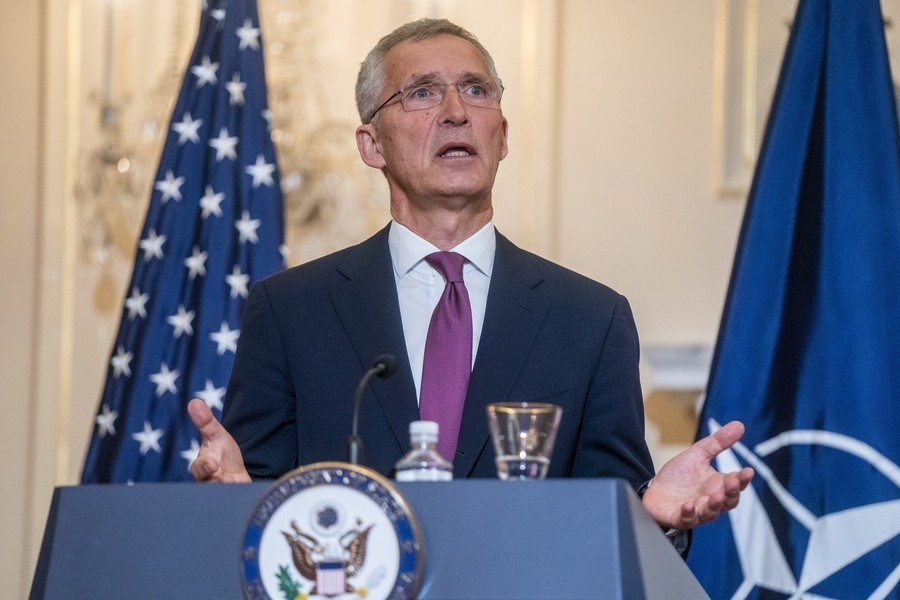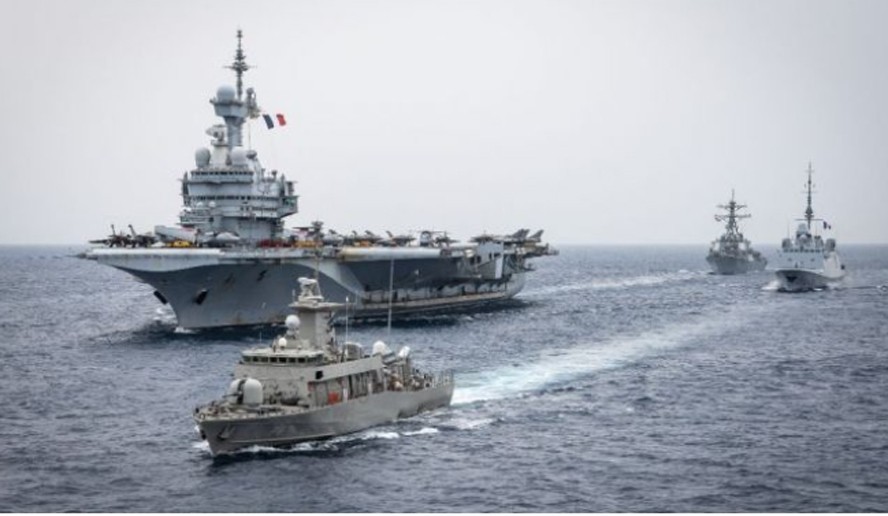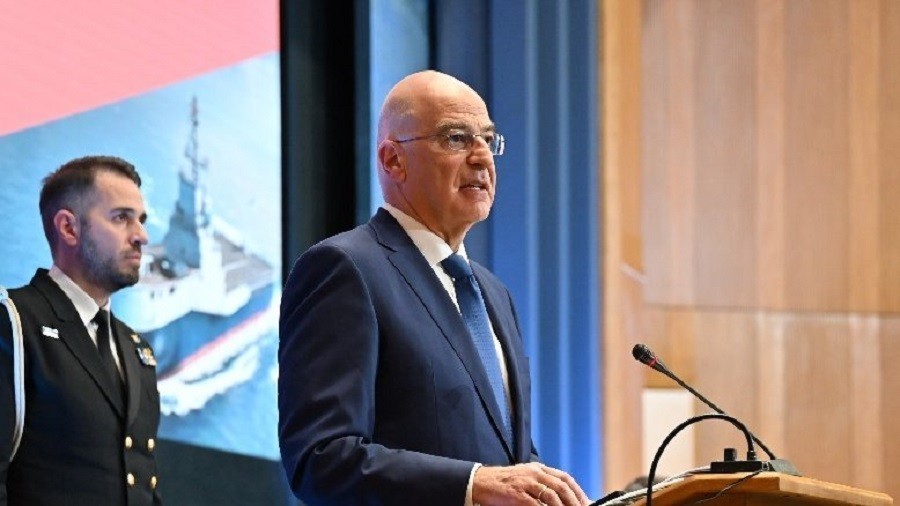
It is high time for Turkey to pay a price from NATO: Erdogan is posing facetious obstacles to thank Putin

FILE PHOTO: NATO Secretary General Jens Stoltenberg responds to a question from the news media during a press conference at the State Department in Washington, DC, USA,. EPA, SHAWN THEW, POOL
Greek-Turkish animosity is one of the most well-known in the history of conflicts. There are plenty of factors that keep this conflict at a high level. History and Geography are the most relevant aspects to explain the disputes between the two nations.
Observing the international landscape after Putin’s War against Ukraine, all the nations are more suspicious of others. Every nation tries to avoid being in the boots of Ukraine. On the other side, many states claim that Russia began a new era of international politics that is friendly to challenging what their history sees as their “belonging”.
It seems that Erdogan embraces Putin’s school of thought. Historical Revisionism is now (after the War in Ukraine) less romantic for the West than before the 24th of February and more attractive for regimes like the AKP in Turkey. Greece is against Historical Revisionism and is facing decades of Turkish aggressiveness on multiple levels. Examining the core of Turkish aggressiveness against Greece is of great importance in exploring the incentives of the Turkish government.
- Erdogan’s narration before came into power in 2003, was no other than Turkey should meet its future in the E.U. Whether Erdogan had a hidden agenda is unclear, but he tried to negotiate Turkey’s membership in the E.U. partly because the Turkish economic elite had supported him.
After failing to give a boost to E.U.-Turkey negotiations, Erdogan expunged the secular establishment that had been running the Turkish state before the AKP party came to power. Supporting the establishment of a new Turkish political order, the leaders of the AKP brought a new narration of Turkey’s role to the table. Ahmet Davutoglu was the architect of the vision that is known as the ”new ottoman”.
According to this vision, Turkey had to play a critical role in the Greater Middle East as a successor of the Ottoman Empire. The Arab Spring gave Erdogan the legitimacy of its vision. Taking advantage of the exceptional flourishing of the Turkish economy, Erdogan tried to rise to the occasion regarding his revisionist vision.
At the same time, in the USA, the Obama Administration claimed that the exportation of a soft Islam which could coexist with an open economy was indeed a beneficial policy for the American interests in the whole region of MENA. But unfortunately, this was not the case. President Obama understood only in the last year of his tenure that Erdogan was not a promoter of peace and prosperity in the region. To cut the long story short, Erdogan succeeded in manipulating the West to pursue his agenda. But what does Turkey ask from the West?
First and foremost, Erdogan asks its western allies to lift the arms embargo against Turkey. Secondly, Erdogan follows his strategy regarding the Turkish strategic orientation. The AKP’s leaders are not famous for their conscientious policy toward their western allies.
The two keywords that perfectly suit Turkey to be described when it comes to its foreign policy mindset are ”leverage” and ”bargain”. Furthermore, the decision-makers in Ankara are not given the benefit of the doubt for their close relations with Russia. Turkey asks Sweden and Finland to ban every organization and individual that supports the Kurdish requests, even if those are at the level of human rights.
On the contrary, Turkey does less and less in the field of human rights, and the democratic values of the Turkish state are not passing through their best days. In other words, Erdogan is posing facetious obstacles to thank Putin because he desires the Russian green light to invade Syria one more time. Unfortunately, Greece and Cyprus are also on the list of Turkey’s bargaining. Greek-Turkish relations are on the edge since 2020.
- It is very important to mention that Erdogan hadn’t shown a great interest in Greece before the coup of July 2016 failed. Erdogan’s principal priority was to eliminate the secular bureaucracy in Turkey and, in the aftermath, to control the regions that pose threats regarding the Kurdish Issue (Syria and Northern Iraq). But implementing a peripheral policy like the ”new -ottoman vision”, the Eastern Mediterranean Sea, and the Aegean one, is of critical importance.
Also, the Turkish leaders have been trying to transform Turkey into a naval power for years. The ”Mavi Vatan” narration is a substantial ingredient of the whole ”new ottoman” vision. To achieve this goal, Turkey should confront Greece and Cyprus because the Aegean Sea and the Eastern Mediterranean could provide benefits to Ankara when it comes to controlling the sea routes from Bosphorus to the Libyan Sea and then to the Suez Canal and Cyprus.
Another important detail is that Turkey agreed with Somalia to exploit a naval base in the Red Sea. Finally, Turkey adopted the theory which claims that to achieve regional hegemony, it is of significant importance to control sea routes. In late February 2020, Turkey pursued a hybrid attack against Greece with an obscure weaponization of the refugee crisis.
Greece succeeded in protecting its borders and at the same time, proving to the E.U, what policies Turkey was conducting. A few months after, in July 2020, Erdogan made its second effort to coerce Greece to accept its irrational and illegal requests. This time, he used less hybrid tactics using the Turkish navy to intimidate Greece. It was the second consequent failure.
After a relatively calm year for the Greek-Turkish relations, Ankara stroke again by expressing harassing and toxic rhetoric against Greece. It was in late May 2022 when the Turkish president accused the Greek prime minister of the speech that he addressed to the Congress of the USA.
Kiriakos Mitsotakis among others made a plea to Senators and Representatives to prohibit the upgrade of at least 80 F-16s and to block the sale of 40 new to Turkey. The logic behind the Greek request is that Turkey uses American weaponry to violate Greek airspace and intimidate Greece and Cyprus.
Of course, there is more than Ankara grasped in the aftermath of the visit of the Greek prime minister to the U.S. Turkish vertigo regarding its foreign policy obliged the American officials to upgrade the Greek-American relations. For Turkey, Greece is now a geostrategic competitor in the region. The Alexandroupolis base and the upgrade of the Suda Bay (known as Best in the Med) materialize the ongoing improvement of the strategic relationship between Athens and Washington. In the mind of Erdogan, Greece counterpoises an important part of what he claims as to the ”Turkish role” in the Eastern Mediterranean region.
- Furthermore, the ambivalent and controversial -to say at least- role during the Russian invasion in Ukraine, oblige NATO to be more cautious about Turkey and the consequence of that caution is to diminish the operability of NATO through Turkish territory as long as the Ukrainian War endures. Of course, there are lots of reasons to claim that Turkey’s malign policies towards NATO are more than welcome from Putin’s side.
Ankara’s aggressiveness against Greece means that the southeastern flank of NATO is in danger. Erdogan provides good services to Putin by blocking the requests of Finland and Sweden to join NATO. Behind the closed doors, most member states of NATO are very disappointed with Turkey, but at the same time, they accept that when it comes to making Turkey pay a price for its malign behavior is arduous.
Following the ”Lessons Learned” from the War in Ukraine, Turkey’s role comprises a separate chapter. The cohesion of the West and the need for a renaissance of international regimes that stand for western values (E.U and NATO) are now the priorities of the western states. Moreover, Putin’s revisionism should be identified in every state that conducts an imitating policy like Putin’s pursued in Ukraine.
Without a single doubt, Ankara is the elephant in the room for NATO. It would be beneficial for NATO itself to commence a productive and serious conversation about potential constitutional inputs to facilitate the functionality of NATO. Even the theory of Regimes stresses that the ”carrot and stick” policies are beneficial for the inclusiveness of organizations like NATO.
Turkey proves that, in the era of multipolarity, inclusiveness should be based on new rules and stipulations that protect the cohesion and the scope of a multilateral organization. In other words, Turkey will continue to follow the malign path unless it has a price to pay. The states behave with rationality when they have a lot to lose by following a brinkmanship policy.
- When it comes to NATO specifically, the member-states, if they calculate, that is always a preferable option to disobey by being a frenemy, then the cohesion of NATO will be illusory. For Turkey, it is not the case whether it is and whether it is not a ”useful NATO ally”.
On the contrary, what matters is that it is a sign of weakness in front of Putin, China, and other factors that challenge the western values if NATO shows comprehension to a member that keeps up threatening Greece with casus-belli, violates the territorial integrity of Cyprus, and, doesn’t abide by democratic values and protection of human rights but it still poses veto against Finland and Sweden that are pillars for the Western democracy.
Ακολουθήστε τη HELLAS JOURNAL στη NEWS GOOGLE

